A multi‑party parliamentary delegation led by Congress MP Shashi Tharoor concluded its Washington D.C. visit today, underscoring India’s resolute stance against terrorism linked to Pakistan. Over three days, the delegation, part of a broader outreach under Operation Sindoor, met with top U.S. officials and lawmakers to make their case for global support.
The delegation engaged Vice President J.D. Vance and Deputy Secretary of State Christopher Landau. Tharoor described the session with Vance as “warm and welcoming and receptive,” with Vance expressing “complete understanding…and support and respect for India’s restrained response”. Landau reaffirmed U.S. strategic backing, stating that America “reaffirmed the United States’ strong support of India in the fight against terrorism and the strategic partnership between the two countries”.
More than diplomatic courtesies, these meetings formed a crucial part of India’s attempt to cultivate a more cohesive global approach to counter‑terrorism. Tharoor emphasised the imperative of uniting against those who “finance, train, and harbour terrorists”, drawing a parallel between past U.S. suffering at the World Trade Center and the Pahalgam attack in April which claimed 26 lives.
The visit in Washington marked the final leg of a nine‑week, seven‑delegation initiative spanning 33 capitals. Delegations have so far visited Guyana, Panama, Colombia, Brazil, the United Kingdom, Japan, and the United Arab Emirates to disseminate evidence of Pakistan’s complicity and appeal for a unified international stance.
Operation Sindoor, launched in early May following the Pahalgam attack, involved precision strikes on terror camps inside Pakistan and Pakistan‑administered Kashmir. India says more than 100 militants were targeted. A ceasefire between the two countries’ militaries was reached on 10 May.
Within the delegation were representatives from Congress, BJP, JMM, TDP, Shiv Sena and others, alongside former Ambassador Taranjit Sandhu, reflecting cross‑party solidarity. Figures included Milind Deora, Tejasvi Surya, Sarfaraz Ahmad, Bhubaneswar Kalita, G.M. Harish Balayogi and Shashank Mani Tripathi. Asaduddin Owaisi of AIMIM, another member, drew comparisons between Pakistan‑linked militants and ISIS, stating that “these terrorists are cowards … using the holy name of Islam to justification their killings”.
Tharoor also addressed U.S. media at the Council on Foreign Relations, asserting India’s clear position: “This is about India vs terrorism … if Pakistan leaves us alone, we’re willing to talk. But not under threat.” He rebuked assertions of external mediation, notably those floated by former U.S. President Donald Trump, asserting firmly, “we will not engage in dialogue with a gun pointed to our head”.
A visit to the 9/11 Memorial in New York further symbolised shared experiences of grief and resilience. Tharoor paid tribute, drawing comparisons with India’s own loss and affirming that both countries must hold accountable “those who harbour terrorists”.
The diplomatic offensive reflects India’s broader strategy to shape global perception. Reuters and Financial Times note that Pakistan launched its own diplomatic campaign in response, with former Foreign Minister Bilawal Bhutto Zardari addressing Western capitals to spotlight alleged human‑rights violations by India. Analysts highlight the delicate nature of Western positions: while the U.S. underlines terrorism threats, concerns persist around regional escalation and transparency in Kashmir.
Inside the U.S. legislature, a bipartisan push is emerging: Congressman Ted Poe has advanced legislation that could designate Pakistan as a state sponsor of terrorism. This bill, if adopted, would require a decisive report from the Secretary of State within 90 days—a significant shift.
Tharoor’s diplomatic mission has boosted support among U.S. lawmakers. He met members of the Senate Foreign Relations and House Foreign Affairs Committees, as well as the India Caucus. These interactions foster direct dialogue and could translate into legislative action.
Beyond official corridors, the delegation engaged think tanks, U.S.-based Indian diaspora, and the media, participating in discussions and interviews to reinforce the narrative that India’s response to terror has been measured and defensive. Tharoor quipped about nonviolence: “We are lovers of non‑violence … until someone” — a phrase he concluded with “Jai Hind” in a message to the Indian audience through X.
The U.S. reaffirmation of support came with caveats: Washington urges restraint and transparency but stands ready to back counter‑terror measures. The diplomatic outreach has pushed the global debate to consider accountability for countries implicated in terrorism, and calls for a recalibration of bilateral and multilateral partnerships.
While Pakistan’s diplomatic efforts continue, India’s unified delegation campaign and bipartisan backing in Congress signal a new era of sustained global attention on terrorism emanating from its western neighbour. Narendra Modi’s government is expected to harness this momentum ahead of pivotal regional and international forums, including the upcoming G20 summit.
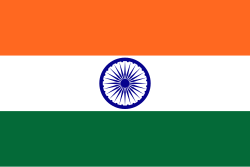
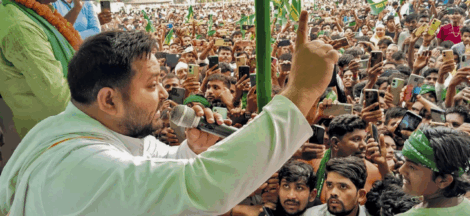
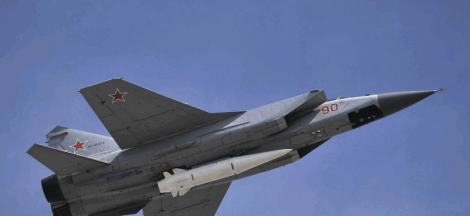
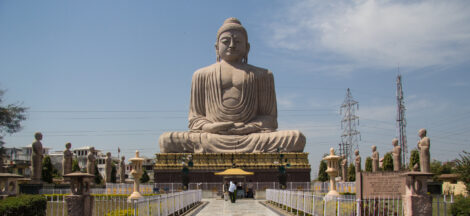
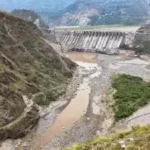 Indus Basin Resorts to Crisis as Flows Plunge Ahead of Kharif
Indus Basin Resorts to Crisis as Flows Plunge Ahead of Kharif 